2014 Report Card: Tinkoff-Saxo
Contador and Majka shine in 'year zero'
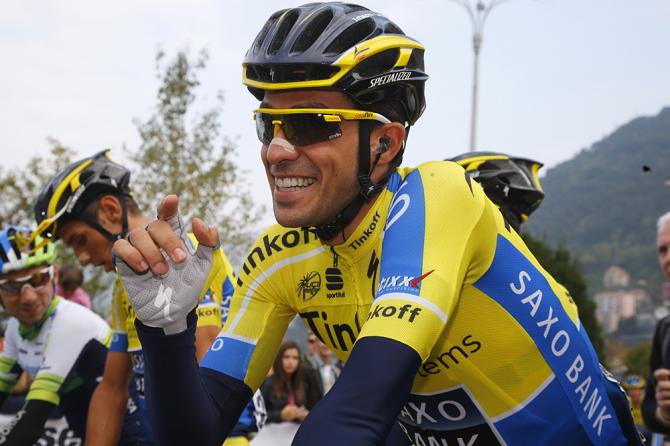
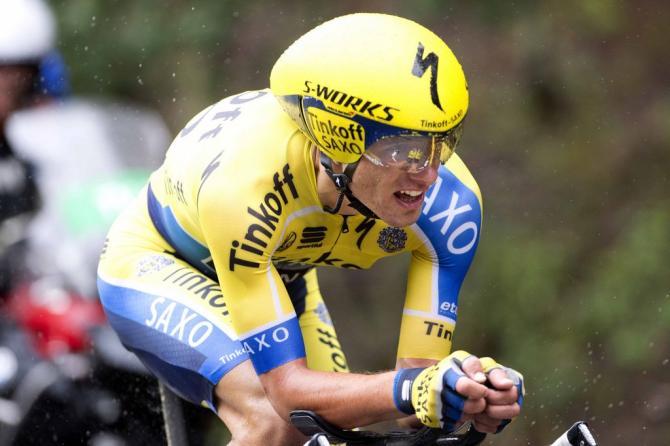
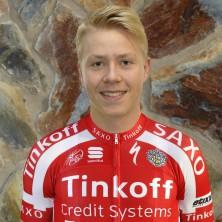
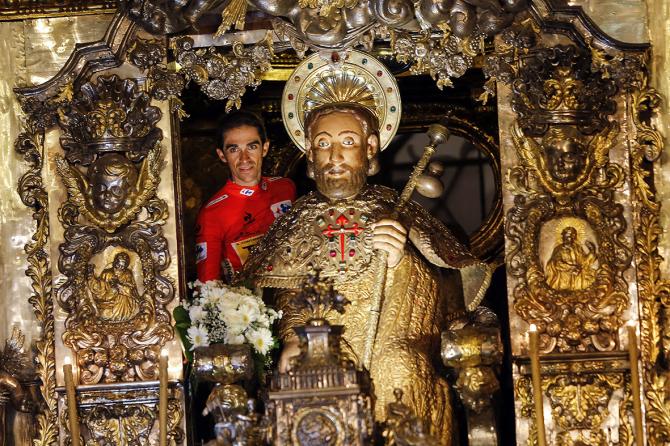
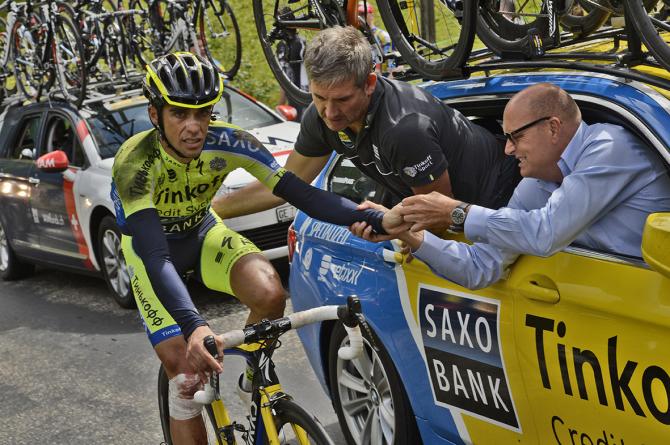
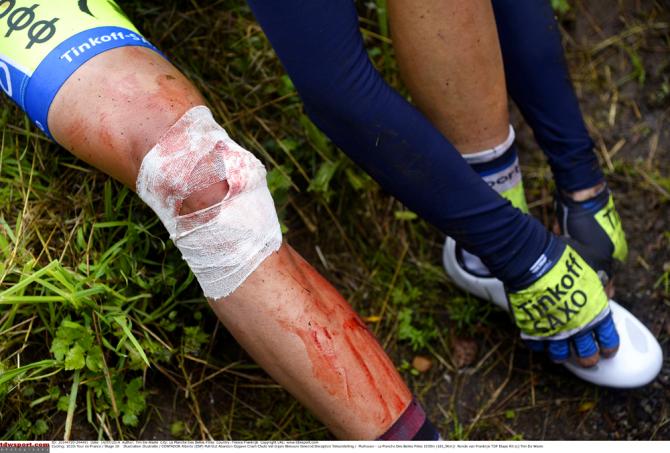
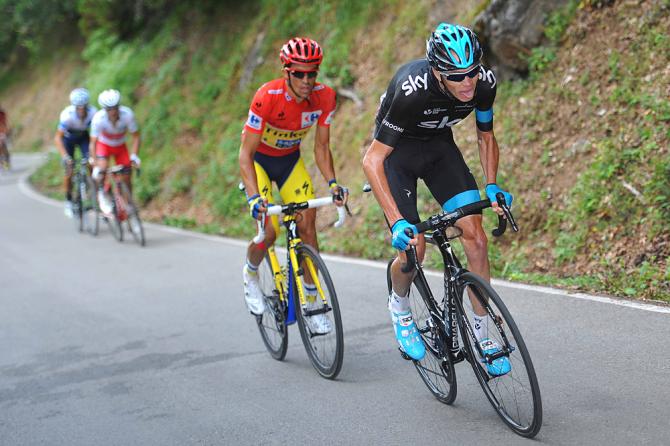
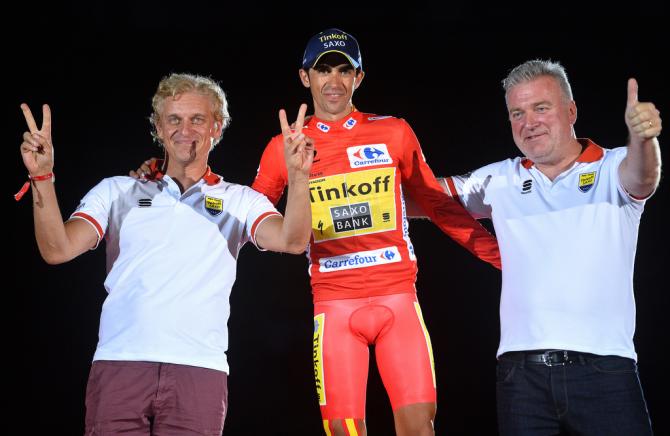
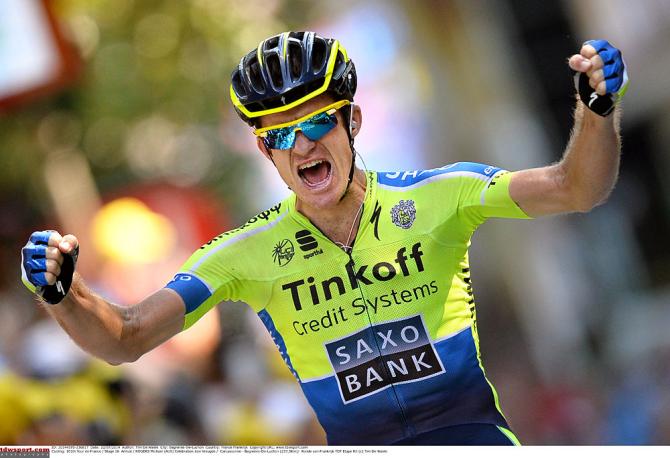
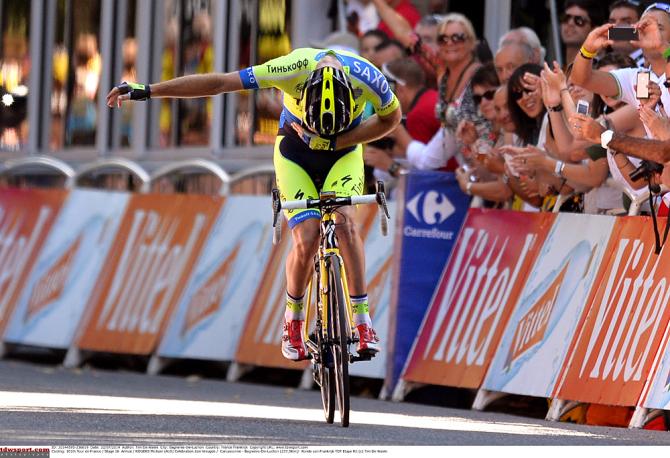
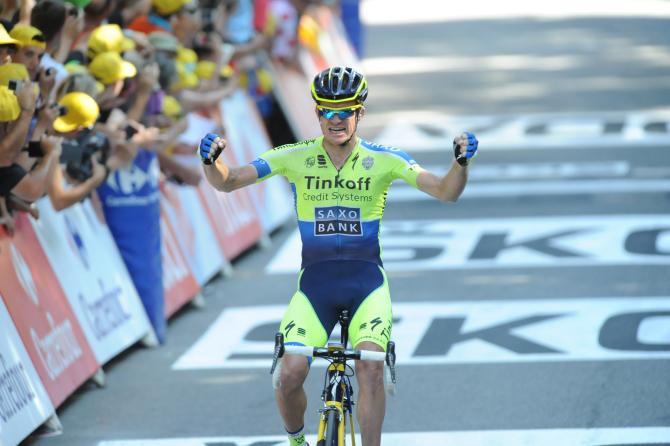
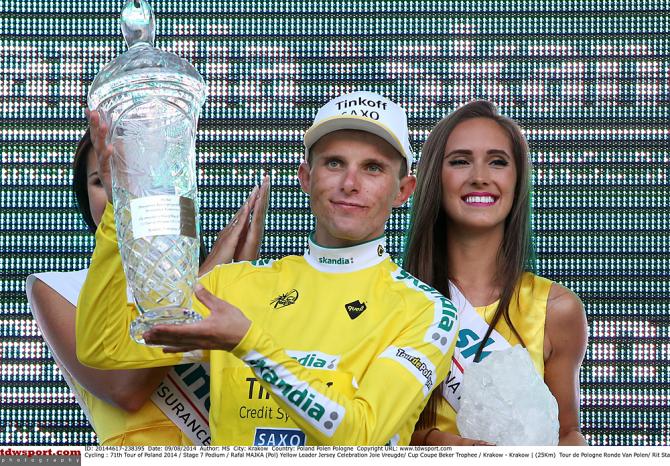
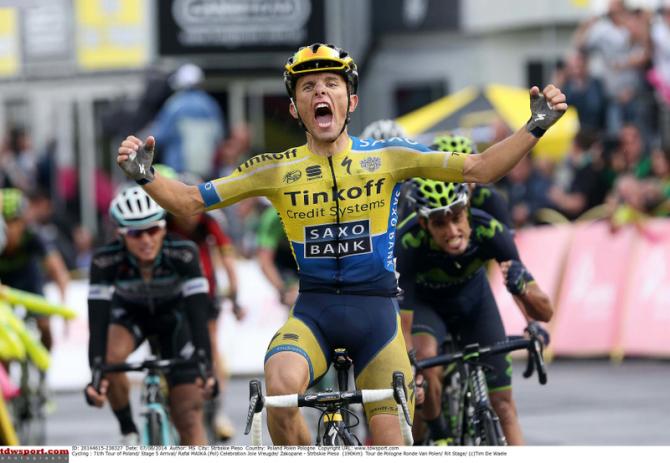
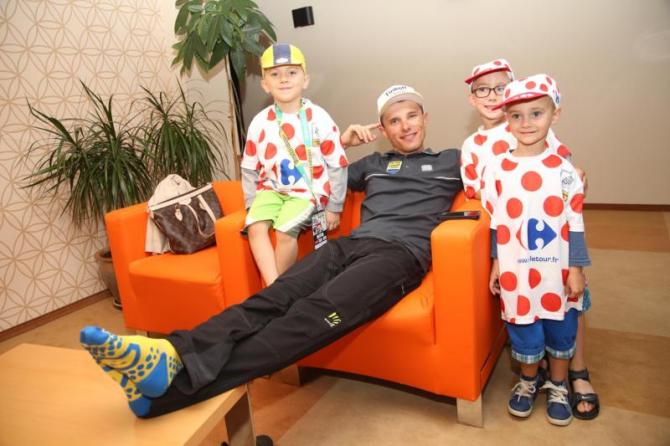
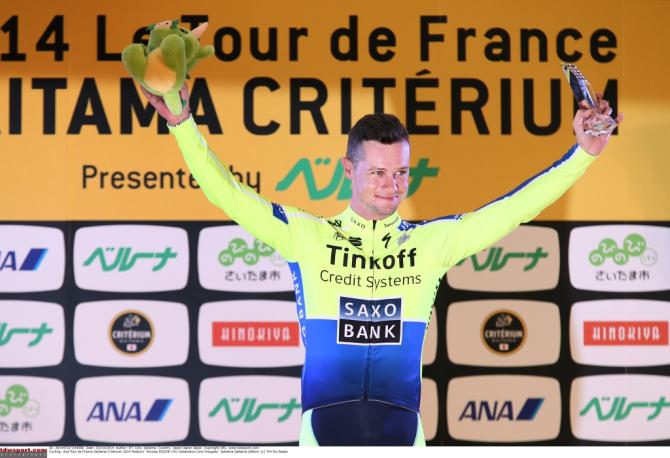
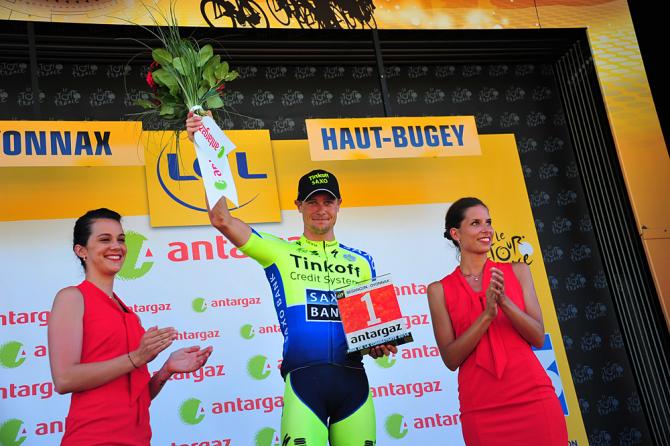
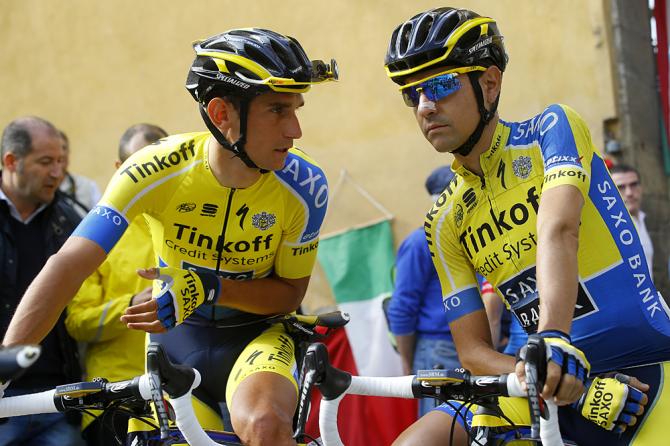
WorldTour ranking: 3rd (up from 6th)
Win count: 29 (up from 8 in 2013)
Top riders: Alberto Contador (2nd), Rafal Majka (20th), Roman Kreuziger (39th), Michael Rogers (82nd), Daniele Bennati (141st)
Tinkoff-Saxo could do little to stop Movistar from topping the UCI WorldTour rankings as best team in 2014 but things look set to be very different in 2015 as Oleg Tinkov's squad becomes one of the true super teams of the peloton after the signing of Peter Sagan and strengthening the roster in lots of other areas.
Tinkov described the 2014 season as 'year zero' of his plans to dominate cycling and topple Team Sky. With Tinkov putting up the cash, Bjarne Riis and Stefano Feltrin at the management helm, Sean Yates and Bobby Julich calling the shots from the team car and Alberto Contador and Peter Sagan backed by strong, experienced teammates, everything seems in place for 2015 to be Tinkoff-Saxo's season.
2014 was an excellent year with the 30 riders on the roster landing 29 victories, 26 second places and 19 third place spots on the podium. Of course there were high and lows, injuries and disappointments but also some big wins at the Vuelta a España thanks to Alberto Contador and others through Rafal Majka, Michael Rogers, Matti Breschel and Michael Valgren.
Alberto Contador's 2014 season was a roller coaster rider of success, pain, comebacks and flashes of pure panache. He won Tirreno-Adriatico, the Vuelta a Pais Vasco and the Vuelta a España but crashed out of the Tour de France after apparently hitting a speed bump while trying to move to the front of the peloton.
The crash left him with a micro-fracture in his tibia and his season seemed a write-off. Yet, somehow, he managed to hold onto his form, fight the pain in his leg and make a secretive late decision to ride the Vuelta. Just being at the start in Jerez de la Frontera seemed to crack his rivals and when Nairo Quintana crashed out in the time trial, Contador gained even more confidence. He went on to win stages in Lagos de Somiedo and Puerto de Ancares, gradually getting the better of Valverde and managing to hold off an ever-improving and aggressive Froome.
Winning the Vuelta, and especially the way he did it, made up for Contador's crash in the Tour de France and after an opaque 2013 and his earlier ban for doping, he proved he was back to his best. He also added a dominant victory at Tirreno-Adriatico and the Pais Vasco to his palmares in the spring after work with new coach Steven de Jongh at altitude on Mount Teide clearly paid off. At the Dauphiné, he let victory slip by focusing too much on main rival Froome but Contador was never off the podium in every stage race he finished. He may turn 32 on December 6 but he has proved he is still the best Grand Tour rider of his generation.
Get The Leadout Newsletter
The latest race content, interviews, features, reviews and expert buying guides, direct to your inbox!
Majka's magical run
When Alberto Contador was out of action, Rafal Majka often stepped up and filled the gap in the Grand Tours and stage races.
The skinny Polish climber was team leader at the Giro d'Italia but only finished sixth overall after struggling with illness in the final week. He was supposed to miss the Tour de France but was ordered to ride when Roman Kreuziger's Biological Passport case was formally opened and the team opted to leave him at home. Majka pushed back in a message on his Facebook but then deleted the message and suddenly found himself the Tinkoff-Saxo team leader when Contador crashed out. He was not an overall threat after losing time on the stage to Sheffield early on, but he won at Chamrousse and Saint-Lary-Soulan (Pla d'Adet) to secure victory in the mountains classification. Somehow, he found the strength and motivation to ride the Tour of Poland just a week after Paris, and he and won the overall classification there after taking two key stages. Before 2014, Majka had a podium place at the 2013 Tour of Lombardy to his name but had still to win a race. Now he is the second highest WorldTour points scorer in the team and arguably Contador's understudy in 2015.
Contador and Majka secured almost half of Tinkoff-Saxo's victories in 2014, while the rest came from the team's solid back row of talent, who mixed days of hard work for their team leaders with moments of freedom and independence where they proved they can win races too.
Matti Breschel won two stages at the Tour of Luxembourg and the overall, while Nicolas Roche won a stage and the overall at the Route du Sud in between riding the Giro d'Italia and the Tour de France. It was a trying season at times for Roche after a difficult winter and spring caused by a knee tendon injury sparked by playing volleyball at a pre-season Tinkoff-Saxo camp. He worked hard to get fit, suffered at the Giro d'Italia but was strong at the Tour de France.
Daniele Bennati may no longer be capable of winning sprints but the quiet Tuscan has evolved into an excellent road captain, earning Contador's trust and thus a place in the Tour de France. He also helped at the Vuelta a Espana and will no doubt have a similarly key role in 2015.
Michael Rogers is also part of the Tinkoff-Saxo “A” team and showed his ability by winning two stages at the Giro d'Italia just two weeks after the UCI opted not to take any further action following his positive test for Clenbuterol at the 2013 Japan Cup. Rogers may be 34 but he has the engine and tactical mind to win and work for a team leader. His second Giro win came atop the very steep Monte Zoncolan, while he showed his endurance and tactical nous by winning the 237km stage to Bagneres-de-Luchon at the Tour de France, ahead of Thomas Vockler and Vasil Kiryienka.
22-year-old Michael Valgren won just two races: the Danish national road race title and the Tour of Denmark.. He also landed two second places and two thirds as well as finishing fifth in the world time trial championships. A name to remember.
Roman Kreuziger is one of the five WorldTour ranking riders for Tinkoff-Saxo but his points are somewhat sub-judice after the UCI finally formalised its investigation into his Biological Passport data. The unusual values actually arose in 2011 and 2012, when the Czech rider was at Astana, but it is overshadowing his time at Tinkoff-Saxo and he missed the Tour de France and the Vuelta a Espana. He was cleared of wrongdoing by his national federation but the UCI has appealed to CAS and is convinced he may have tampered with his blood to boost his performance. Tinkoff-Saxo have shown their support but he is currently more a liability than an asset as the 2015 season looms.
Here comes Sagan
What to expect in 2015: Tinkoff-Saxo was one of the dominant teams in Grand Tours in 2014 and with the addition of Peter Sagan, the Russian squad will also become a true contender in the cobbled Classics, the green points jersey competition at the Tour de France and in any race where Sagan can use his speed and bike skills to outwit the pure sprinters. It will mean a lot of hard graft for the team's domestiques but Tinkoff-Saxo has some of the best in Bennati, Manuele Boaro, Jesus Hernandez, Michael Morkov, Chris Anker Sorensen and Matteo Tosatto.
Sagan won seven races in 2014 despite clearly being distracted by his big-bucks move to Tinkoff-Saxo. He will be expected and will surely be expecting to win even double that figure in 2015, and with a significant boost in the quality of his wins to boot. Victory at E3 Harelbeke notwithstanding, Sagan struggled in the spring Classics because he was isolated and exposed as the Cannondale team was unable to assist him. That should not be the case in 2015 with Tinkoff-Saxo and Riis always knowing how to perform as a team in races when team work is most vital.
The organisers of the Tour de France have changed the rules of the points classification after Sagan dominated the competition for the last three years. Giving more points to stage winners may open up the battle for green but the biggest problem for Sagan and Tinkoff-Saxo is trying to win both yellow and green, and stack up stage wins on the flat and in the mountains. If they do it, then 2015 will absolutely be their season. The only thing that could top it, is if Contador also wins the Giro d'Italia and become the first rider since Marco Pantani to do the Giro-Tour double. It would all cost Oleg Tinkov a huge amount in bonus payments but he would surely be happy to pay for the glory and bragging rights.
Best signing: Without a doubt, Sagan is the biggest signing for Tinkoff-Saxo but such is the expectation that anything less that a major Classics victory and plenty of other wins during the year could be seen as failure. As a result, the arrival of Robert Kiserlovski could be the signing of the year for Tinkoff-Saxo. The Croatian rider's last win was in 2010 when he took the Giro dell'Appennino. However his consistency in stage races is impressive and he will be a vital teammate for Contador.
Other new names in the now dark-coloured kit include Ivan Basso, Maciej Bodnar, Pavel Brutt and Juraj Sagan.
Biggest loss: Tinkoff-Saxo has hired several former staff from Team Sky but the British team has hit back by securing Nicolas Roche. The classy Irishman will be missed at Tinkoff-Saxo and be real asset to Team Sky as he helps Froome to take on Contador.
Man to watch: Michael Valgren. He is still only 22 but is already Riis' special project within the team and could become Denmark's next stage race contender.

Stephen is one of the most experienced member of the Cyclingnews team, having reported on professional cycling since 1994. He has been Head of News at Cyclingnews since 2022, before which he held the position of European editor since 2012 and previously worked for Reuters, Shift Active Media, and CyclingWeekly, among other publications.